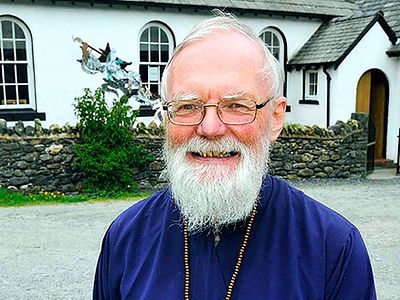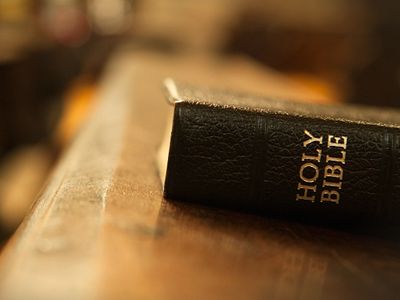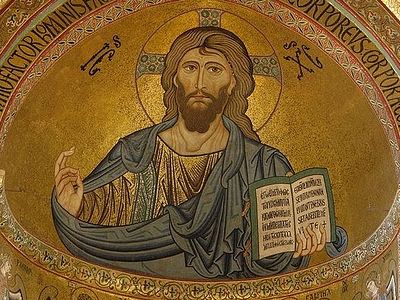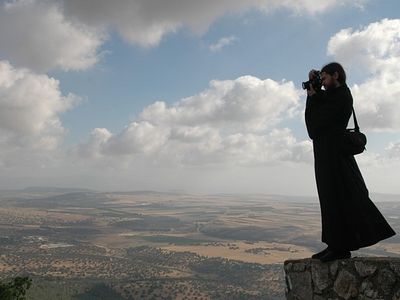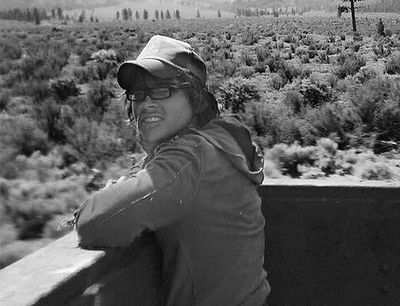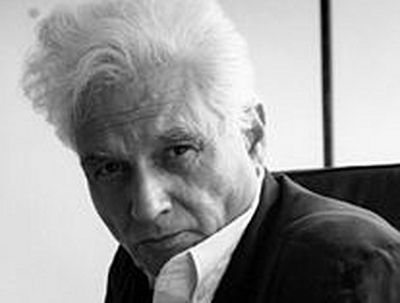This interview was conducted between two friends—one formerly a Southern Baptist, the other—the interviewer—currently a member of that denomination. Brian Davidson and Vincent Gabriel both studied at the same Baptist seminary, where the interviewer now works as a Ph.D. candidate. Gabriel is now an Orthodox Christian, with his own blog on the Orthodox faith.
—Vincent, thanks for agreeing to chat a bit about your transition from Baptist to Orthodox. First of all, how do you speak of your transition? Would you say you “converted” to Orthodoxy?
—The common parlance seems to be “converted.” Most Orthodox Christians I know who did not grow up in the Church refer to themselves as “converts.” In a true sense, however, being an Orthodox Christian is all about a continual conversion to Christ. Therefore, everyone is a convert, and we all continue to “convert” as God works on our hearts and as we seek to be sanctified and transformed into a true image and likeness of Christ.
—Could you give us an overview of your story? How did you go from Baptist to Orthodox?
—I was raised in a faithful, Southern Baptist family, and my father—who was born and raised Roman Catholic—himself converted to the Baptist faith when I was too young to remember. As a typical Italian-American family, my father’s side is Catholic, and on my mother’s side it is mostly Baptists. If the doors were open, we were at church, and my parents continue to be dedicated members and contributors at the same church in Arkansas to this day.
From my teenage years, I was closely involved with music and other ministries at our church, and especially in our youth group. By the time college rolled around, I was an active leader in the local Baptist Collegiate Ministry group. This passion led to a feeling that I was “called to ministry,” and so at the encouragement of my pastor (himself a former student at SBTS), I looked into Boyce College. I had just finished a degree in Graphic Design, and I was already trying to figure out what to do next.
In the summer of 2004, I moved to Louisville, Kentucky and began some summer courses at Boyce. My goal was to complete a Biblical and Theological Studies program, and then transition to the M. Div. program at Southern. Being already a Calvinist when I arrived, my studies in the Reformation and Church history soon led to an acceptance of things like infant baptism and an increased focus on areas like sacraments and ecclesiology. When I no longer felt at home at Boyce (I was already attending a Presbyterian church by this point), I decided to break away and finish my B. A. at Indiana University, with a major in Philosophy.
After college, I remained in Louisville and was active in our Presbyterian church. I soon met my wife-to-be and we were married and happy with our circumstances, our local church, our friends, and our faith.
For me, everything changed when I found out that I was going to be a father. As the time for the birth of our daughter drew near, I began to think about what her life would be like. What would her experience of the church be? Of religion in general? Would I be a good father? How could I better prepare for this awesome responsibility?
These “big picture” questions led to a fervent study of Scripture, Church history, and the early Church fathers (especially the apostolic fathers). Interestingly enough, we were already acquainted with a family that had converted to Orthodoxy. As providence would have it, that wife was to be the doula for my wife (and our daughter’s birth). And as a result—and in the weeks leading up to delivery day—we spent a lot of quality time with them. Discussions of theology and the Church between myself and the husband were inevitable. As they say, one thing led to another.
After being mercifully born with few complications, our daughter was baptized in our Presbyterian church. But soon after, we had an opportunity to visit our friends’ local Orthodox parish (our pastor was out of town, so we figured, “Why not?”). One visit was enough for me to know that our lives were about to radically change. It was one thing to read books and study about the history of the Church, and yet another to experience the Divine Liturgy and see where all of the ideas, stories, histories, and theories I had been contemplating for many months (and even years) intersect. I know for many other people, one visit is far from enough. But for me, it really was. I don’t know, it’s difficult to explain.
Ever since, we have worshiped at three different Orthodox parishes (as we moved from Louisville back to Arkansas, and now to the Pacific Northwest), and continue to grow in our love of the faith. It has definitely taken years of adjustment and acclimation, and that probably won’t change anytime soon. But we certainly feel like we made the right decision.
—Having lived in both worlds, what are a couple things that Baptists—or more generally, Protestants—should know about the Orthodox faith?
—This is a tough question to answer, but I’ll give it a (brief) shot.
First, let me say that were it not for the faithfulness of my parents, I wouldn’t be a Christian today, much less an Orthodox Christian. Being in church several times a week for the entirety of my childhood and adolescence instilled within me a great deal of reverence not only for the Church, but also for the Christian faith as a whole. I was raised to believe that the Scriptures are reliable and beneficial to us, that God loves his Church, and that everyone is created according to his image. This “worldview,” if you will, is what led to my interest in studying theology, in serving in the local church, and in helping others learn more about Christ. That all began because of what my parents taught me from a very young age.
That being said, there is a significant “dissonance,” so to speak, between Protestant experience and that of Orthodoxy. Even when similar terms are used (“saved,” for example), the meaning in most cases could not be more different. There is a great history and depth behind so much of what takes place in Orthodox parishes on Sunday mornings, that every one of your questions (“Why do they do that?”) uncovers a dozen more. It’s easy to get overwhelmed with this sort of thing, and so the Church will “ease” a person into their inquiry of the Orthodox faith. Depending on the people, the circumstances, and the parish, a person (or family) might be transitioning as catechumens for a year (or several) before they are finally received into the Church—or before they decide that it isn’t really for them.
I would also submit that Orthodoxy is not “basically the same thing” as Roman Catholicism sans Pope, as one might possibly assume. So many of the “biases” a faithful Protestant has with regards to the Vatican may or may not apply to the Christian East. There is certainly a great deal in common, and we share a common heritage of over a millennium, but there are a number of nuances, distinctions, and outright disagreements. Further, these distinctions or disagreements are in areas that significantly affect a person’s day-to-day experience of the faith—and their understanding of God—and so they really do rise to a level of importance.
Another thing worth noting is that Orthodoxy is not merely an “ethnic” religion. While our parishes and local churches might be referred to as Greek, Russian, or Serbian, this is not about ethnicity but rather locality. All of our churches trace their origins or heritage back to a particular, local church (the five most-important churches of the first millennium were in Rome, Constantinople, Alexandria, Antioch, and Jerusalem), and this has multiplied as the Church has spread throughout the world. We currently attend a Greek parish in Washington, and attended an Antiochian one before that. We are neither Greek nor Syrian, and in fact, most of the people attending these parishes aren’t either! This is the case even in the “old countries.” I think that’s an important clarification to make, as it is often misunderstood. Orthodoxy sees herself as a universal faith, and is both open and welcoming to people from all tribes, nations, and languages.
If someone from a Baptist background is interested in learning more about the Orthodox Church, my best suggestion would be to take it very, very slowly, spending as much time standing in the back of a parish and soaking things in as you do reading books or listening to podcasts. There’s a lot of good information out there, but there’s also a lot of noise (as anyone familiar with discourse on the Internet will readily submit). The best bet is to reach out to a local parish priest. They likely won’t be out to corner you with clever arguments, or force you to convert, so they can be a good sounding board or starting point for someone with lots of questions or even just a mild curiosity. They might even help you with your Greek homework.
—Free Greek tutoring and good theological conversation! You can’t go wrong with that. A couple more questions, Vincent. For years you have hosted a blog “with the express purpose of promoting the Orthodox Christian faith.” What one or two thoughts would you hold out to Protestants who just cannot understand why someone would convert to Orthodoxy?
—I’ve actually written or reflected on this very subject a great deal over the years. But first, let me tell you something a little more light-hearted:
Whenever people find out that I’m Orthodox, there’s almost always a follow-up question: “What’s that? Are you Jewish?”
My standard answer has become: “It’s kind of like Roman Catholicism, but older and weird.”
This accomplishes one of two things: They are either done with their questions and respond with something like, “Oh, interesting,” or they start asking more … and more … and then even more questions. It’s a good way to find out if someone is making small talk, or might want to have a fruitful and often enjoyable conversation.
But why Orthodoxy? Why would anyone—especially a faithful, Bible-believing Protestant—want to convert to this old, “weird” faith?
I’d like to say I could give you two reasons, but I can really only give you one. The only reason a person should convert to Orthodoxy is because they believe it to be the “one holy, catholic, and apostolic Church” (as confessed in the Creed). Because they believe it to be the fullness of God (Eph. 1:23), the pillar and foundation of the truth (1 Tim. 3:15), and the temple of the living God (2 Cor. 6:16). Because they believe that there, in a unique and complete way, they can encounter and learn to become like Jesus Christ.
Until or unless someone has that singular conviction, all other reasons—beautiful worship, a good grasp on Church history, the Church fathers, the chanting and hymnography, even (with a nod to Seinfeld and George Costanza) “the hats”—are merely icing on the cake. In fact, I have seen a lot of unfortunate and even spiritually tragic stories unfold, in which a person or family converts to Orthodoxy for all the wrong reasons.
—Ha! I love the Seinfeld reference, and I appreciate the warning to readers about converting for the wrong reasons. OK, now you know I have to ask this one: why the LXX rather than the Hebrew Bible? Was the move to the Greek Old Testament, with the inclusion of the deuterocanonicals/apocrypha, a big deal for you and your family?
—It’s interesting, you know? When I was at Boyce, I had a professor of Old Testament who frequently praised both the Septuagint and its expanded canon. He would sometimes go off on tangents about how there were no good reasons for the Reformers to strike these books from the canon. So it was actually a Baptist professor who first introduced me to the Septuagint. Since then, I never really had any major issue accepting these “other books” of the broader, Septuagint canon as Scripture. They are clearly not as central to the faith as the Gospels or Psalms, for example, but they are nonetheless a part of our tradition.
But let me back up just a bit: For Orthodox Christians, it isn’t really about the LXX instead of the Hebrew; it’s rather a matter of received tradition and a belief that the usage of this text by Christ, the apostles, and the overwhelming majority of the Church fathers is not really something secondary or tangential to the life of the Church. This was a decision we believe to be inspired, and so their usage of that text—and all its implications, especially in our hymnography, feast days, and finer points of theology—has a real and divine purpose.
Textual criticism, so to speak, wasn’t being done in the same way it’s done today, and this is even the case with Origen (cf. Louth, Introducing Eastern Orthodox Theology, p. 12). Rather than looking for a single, original text, the Church was receiving and making use of an inspired, scriptural tradition—one of multiple texts. The early Church fathers are practically unanimous through the fifth century that the LXX was an inspired translation, and I share that conviction. And really, considering some of the ways the Old Testament is used in the New, it’s an interesting prospect to say there wasn’t something divine about the way those third century Jewish scribes translated a phrase that either substantiates or completely overturns Christological prooftexts in the letter to the Hebrews (for example).
In the modern context, I might argue in various places that the LXX represents an older or “less-edited” version of the Hebrew text, and a lot of scholars are actually starting to acknowledge as much (e.g. in light of comparisons with the Dead Sea Scrolls, the Samaritan texts, etc.). And in that sense, it’s not so much about Greek over and against Hebrew, but rather which Hebrew? Judaism was not monolithic in the first century (or in the centuries thereafter), and so debates about everything from manuscript to canon persisted for centuries. What seems fairly clear, however, is that the earliest Christians (even in the West, down through Jerome) looked first to the “Old Greek,” and then to the other editions of Scripture (Syriac, Coptic, Hebrew, etc.). That is essentially the same approach in the Orthodox Church today: not an exclusive reliance on the Septuagint, but a prioritized one. The fathers always ask first: “What do ‘the seventy’ say?” And so should we, as Orthodox Christians. And in contemporary Orthodox scholarship, there is a great deal of interest in and respect for the other manuscripts of the Old Testament, and especially recent discoveries like those at Qumran.
—I appreciate your emphasis on tradition throughout this conversation. How has coming to a better understanding of early church tradition affected your and your family’s spiritual formation?
—I think what comes through most for me when studying (and seeking to embody) Orthodox tradition is just how vast and unsearchable it really is.
A great comfort that I soon discovered was that, in the Orthodox Church, it is not the duty or even goal of each individual person to figure out a “patristic consensus” for every doctrine, or what the “Orthodox interpretation” of a particular passage of Scripture might be. Instead, we are largely called to a life of repentance, a life of asceticism and spiritual growth, and a life of prayer and worship. We are called to a life of conversion.
Worship is so central in Orthodoxy that many Orthodox Christians won’t even speak or think about anything else in the context of their “Christian walk.” The entire year is filled with festivals and fasts, anticipation and culmination, shadow and fulfillment. The life of Christ and the apostles is laid out before us annually, and we are invited to—in a very real and transformative way—take part.
This life of worship is what most readily identifies us as Orthodox Christians, and it soon overtakes most other aspects of our day-to-day life. Adjusting to this new way of living is largely what it means to “convert” to Orthodoxy—rather than amassing enough information, or figuring out all the right passages to defend one’s new-found convictions. It’s a call to both a Sabbath rest and a spiritual battle. It’s a call to suffer as co-heirs of Christ and to carry our cross to the Last Day.
—Vincent, thanks so much for taking the time to chat. I’ve never had the opportunity to speak at length with someone of the Orthodox faith. It is so helpful and interesting to hear your perspective. There is much to chew on here. Best wishes, friend.


